Children at the 2022 Manchester Pride Festival’s programme of events especially for LGBTQ+ families and children © Gemma Parker
At my primary school, in a scruffy industrial town on England’s industrial Tyneside, references were made to “boys and girls” without – as far as I can tell – any ill effects. We all knew what we were and at that age didn’t much care. The boys played together with other boys who shared their interests (usually football or cowboys and Indians or some similar rough-and-tumble) while the girls played amongst themselves, whatever games they liked and enjoyed. I never knew what those games were and nor was I interested in finding out. A serious interest in girls only came along when I reached my teens. I had two older sisters, and I never really understood their games, either. They never played with my train set with me, nor with my toy cowboys. I was convinced at an early age that boys and girls are different and have different tastes in terms of amusing themselves. It would now seem that in some schools an attempt is being made to eradicate those differences.
It’s been reported (mainly in Britain’s more right-wing newspapers) that in some schools the expression “girls and boys” has been banned (which would make it impossible to sing such nursery songs as “Boys and Girls Come Out to Play”), while the present government is allegedly seeking to ban teachers from attempting to “indoctrinate” pupils with political attitudes towards gender issues. I don’t think it would have worked at my school; we all knew we were either girls or boys and even at the age of 8 or 9 I can recall boys in my class pointing to girls sitting cross-legged behind us on the floor because it meant we could see their underwear. At that age, I wasn’t very interested, although some of my friends clearly were. They were certainly aware that they shouldn’t have been looking, even if some of the girls didn’t seem to mind. Both knew it was “naughty” but didn’t really understand how or why.
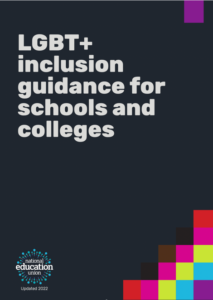
According to the UK’s National Education Union (NEU), sexist behaviour remains a major issue in British schools, with some 37% of female students reporting incidents of sexual harassment, while 24% have reported incidents of unwelcome “touching”. Furthermore, 66% of female students and 37% of male students in mixed-sex sixth forms have experienced or witnessed the use of sexist language in school, according to an NEU report. If true, it’s a damning indictment of the way in which youngsters in Britain are raised at home. The teachers at my primary school would have been outraged if such incidents had been reported and punishment would have involved the use of the cane. I expect that some incidents of sexual behaviour that should not have happened nevertheless did but it’s something that simply wasn’t talked about. The NEU report is more concerned with secondary schools where bad behaviour motivated by sexual issues is more prevalent for obvious biological reasons. Sexual harassment in school is a gender issue, with the majority of cases involving boys targeting girls. “37% of girls report experiencing sexual harassment,” says the NEU, “compared to 6% of boys.” Female students are also significantly more likely to describe multiple incidents and more severe cases of sexual assault. They are also less likely to dismiss their experience as ‘a joke’.
The solution is not, of course, to simply pretend that gender isn’t an issue and that boys and girls are just the same. They’re not. But “gender fluidity” – the changing of the gender in which a person identifies themselves – is not the same thing and it has been said that school children are being taught about it when they’re too young to comprehend what it all means. In one case reported by Britain’s Daily Mail, a group pf 11-year-olds at a school in the Isle of Man were told by a guest speaker that there are 73 genders (other reports say it was 72 genders or even 74). A boy who stood up and pointed out that there are only two was allegedly told to leave the room. If there really were so many different genders, it would have made visits to the local youth club dances unbearable (and very confusing). Instead of chatting up somebody of the clearly opposite gender, the participants would have had to spend the time desperately trying to work out who (and what) they were talking to. I can’t help wondering about the context of the lecture and whether or not it was the tone of the boy’s response that led to his removal. Reading that story makes me glad to be old.
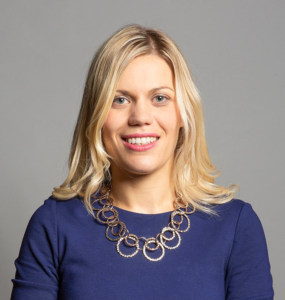
| TOO MUCH KNOWLEDGE, TOO LITTLE UNDERSTANDING?
It’s certainly true to say that not all of Britain’s elected representatives are happy with what is currently being taught. One Conservative member of parliament, Miriam Cates, a member of the House of Commons Education Committee, has described the current education on sexual matters as “extreme and inappropriate”. She admitted that the intentions were sound, but she alleged that the new framework for sex education had “opened the floodgates to a whole host of external providers who offer sex education materials to schools”. She is quoted in The Independent newspaper as saying that: “children are being exposed across the country to a plethora of deeply inappropriate, wildly inaccurate, sexually explicit and damaging materials in the name of sex education.” Cates said that the lessons currently contribute to confusion while reinforcing the pornography culture to which children are too often exposed. Cates told MPs that one parent had approached her, distraught because her 6-year-old had been receiving lessons about masturbation whilst the same teacher was also encouraging pupils to engage in conversations with adults about their private feelings and intimate behaviour, thus making them more vulnerable to those with predatory intentions. Additionally, Human Rights Watch (HRW) points out that a child’s activities on-line can be studied through the app she (or he, presumably) uses to do her homework. Children log on, using an app assigned for the task in hand, but the data then goes to AdTech companies, specialising in information analysis and the end user can then tell who the student is, where they live, how much the parents can afford to spend on a laptop and so on, merrily selling the data – without the student knowing – to data brokers, law enforcement agencies, government departments and so on. Welcome to the Brave New World. Aldous Huxley would have a fit. HRW wants to make it easier for students or their parents to block this flow of information. According to the VICE World News Digest (unfortunate name), there are more than 20,000 state-run schools in England (more in the UK as a whole, of course) but training modules on consent and internet safety have only been downloaded a few thousand times. By and large they seem to be being ignored.

Getting back to the gender issue, there has been much talk about the Tavistock Clinic, the UK’s only gender identity clinic specifically for children and young people. It was supposed to help those who found themselves confused about their gender identity. The Clinic used puberty blockers to “help” those unsure about their genders, but that would have to be when the patients were very young and just entering or about to enter puberty; invariably under the age of 18. The National Health Service announced in July 2022 that it would close the facility, replacing it with a set of new regional centres with the aim, it said, of “ensuring the holistic needs” of its patients. One of the clinic’s former patients, Keira Bell, brought a successful High Court case against it and has expressed her delight at its closure. “Many children will be saved from going down the path that I went down,” she said. She claimed that her decision at the age of just 16 to undergo drugs treatment that turned her from female to male (at least physically) had not been challenged sufficiently. She later regretted her decision, while an internal report drew attention to a clinical decision for which there had been insufficient supporting evidence. By the time she changed her mind about the process she had been taking puberty blockers for around nine years and, at the age of 20, had undergone a double mastectomy. She said later that those patients clearly needed more mental health support and therapy before taking irreversible steps towards changing their gender.
The review examined the single specialist service which provided gender identity advice for children and young people: the Gender Identity Development Service (GIDS) at the Tavistock and Portman NHS Foundation Trust. One of the early findings was that the rapid increase in the number of children requiring support and the complex resulting case-mix meant that the extant clinical model, with a single national provider, was simply not sustainable in the longer term, leaving the service struggling to cope with its spiralling waiting lists. Staff found themselves coming under increasing pressure, with the numbers of people seeking the clinic’s help having risen to twenty times its level a decade earlier.
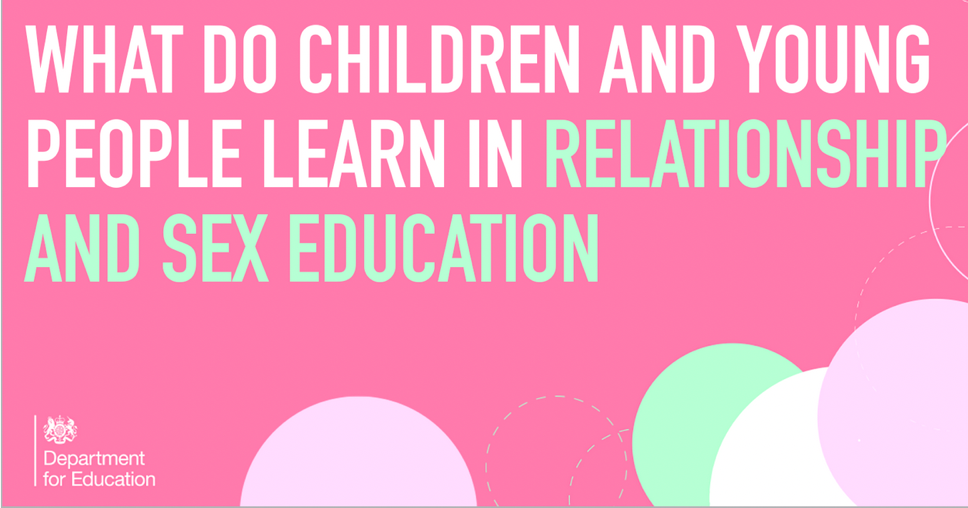
The closure has also been welcomed by, among others, the LGBT rights group, Stonewall. Its spokesperson said that it was pleased to see the NHS addressing its “unacceptable” waiting times, which invariably faced young trans people trying to access gender-identity health care. I may be guilty of misjudgement here, at least in some cases, but I get the impression of young medical practitioners willing to try out experimental ideas on their young patients in the hope of making a name for themselves. And, of course, making lots of money, too, although I’m sure they meant well. Even so, it’s reckoned that the UK government is failing on its promise to give the lessons about sex and inter-personal relationships that it promised.
According to data released under Freedom of Information laws, only a tiny proportion of English primary and secondary schools have downloaded the available teacher training modules on things like consent and internet safety, covering such issues as relationships, sex education, pornography and sexual health, although the new curriculum has been mandatory for all schools since September 2020. It made education about relationships compulsory in primary schools, with students ranging in age from 5 to 11, and education on relationships and sexual matters at secondary schools, teaching students aged 11 to 18. It’s the first time such education has been compulsory, but experts say that the modules have only been downloaded in a minority of schools. It’s reckoned that fewer than one in five schools have teachers who have studied the modules.
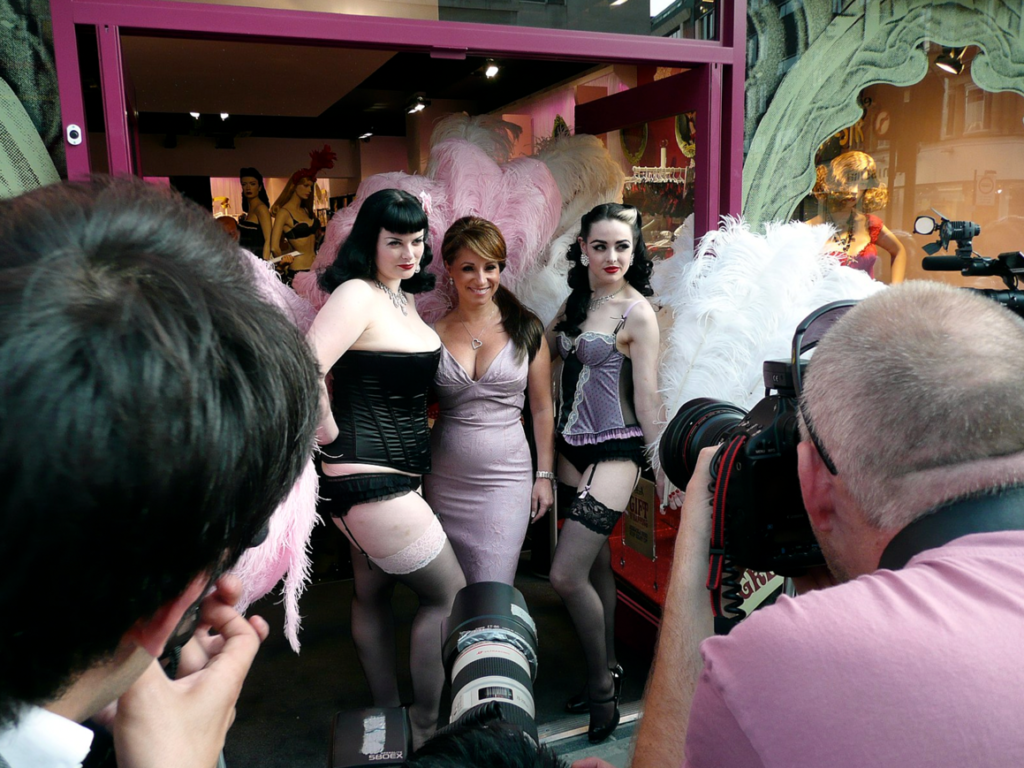
| WHAT IS YOUR CHILD LEARNING?
As animals (albeit human ones) that rely on sex as a way of continuing the survival of our species, we are remarkably ignorant about it. According to Jacqueline Gold, who built up the Ann Summers empire and who recently died of breast cancer, she had a tough job convincing the (all-male, all-middle-aged) board of the company that women would buy the products at all. In 1981, she said, the board remained unconvinced that women could be encouraged to buy racy underwear and sex toys, with one board member stating that “women aren’t even interested in sex”. Strange that our species continues, then, really. Perhaps it just goes to prove that most of us men just aren’t much good at it.
A group of parents in Wales lost a legal challenge they brought against the teaching of gender identity and sex in primary schools. Campaigners had described the policy, known as Relationship and Sexuality Education (RSE) as “woke” and “dangerous”, mainly because they seem to have wanted there to be no mention of the matter at all in schools. The parents complained that it involved mandatory teaching of various aspects of the subject from the age of seven, but without mentioning traditional things such as family life. They said it gave too much prominence to LGBTQ+ themes. The judge, however, Mrs. Justice Steyn, rejected the challenge, pointing out that: “There is nothing in the code or the guidance that authorises or positively approves teaching that advocates or promotes any particular identity or sexual lifestyle over another, or that encourages children to self-identify in a particular way.”
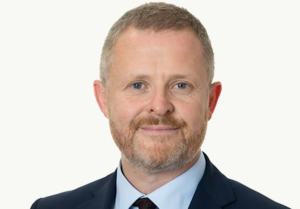
The judge said that the curriculum aimed to “encourage tolerance between human beings irrespective of their sexual orientation and identity, and to enable children to deal critically with influences from society, so that they develop into responsible and emancipated citizens capable of participating in the democratic processes of a pluralistic society.” The judge’s decision was welcomed by the education minister in the Welsh government, Jeremy Miles. He said he had been appalled by “the misinformation that has been purposefully spread by some campaigners, and the additional pressure this has brought upon some schools and workforce.” The campaigners seemed to believe that young people would never consider gender issues if they didn’t know such opinions were held by anyone. I’m not so sure.
There is no doubt, however, that the new British sex education curriculum has its opponents, and we must concede that they have a point. Do children need to know about the possibility of gender change or the “choice” of homosexuality? They may become interested in such possibilities anyway if they find themselves that way inclined, but is there not a risk that the knowledge itself may encourage them to develop further interest? I don’t know the answer to that; I’m not a psychologist. A number of the parents can be seen shown protesting with banners bearing such slogans as: “Let kids be kids” and “My child, my choice.” A number of the parents are East Asians, objecting to the lessons on religious grounds, which is understandable (although I am not religious).
Back when I was at school, of course, nobody thought about sex education (or even about sex), and it was something that nobody at home would ever talk about, either.

The new guidance on LGBTIQ+ insists that even primary school students must learn something about it. Under its rules, the existence of LGBTIQ families must be explained and schools must increase the amount of time they spend teaching about such issues as menstrual health and informed consent, as well as introducing new guidance on the risks involved in social media and the Internet, such as “sexting” and “revenge porn”, described in a British court as: “sharing private sexual pictures and videos with intent to cause distress”. It’s a very unpleasant offence and can be extremely damaging to the victim. Thinking back to how ill-informed we were when I was young it’s amazing we grew up to produce families at all.
There are large numbers of parents in the UK, especially those of a religious inclination, who totally oppose sex education. They’re especially keen to get teaching about LGBTQ relationships removed from the curriculum, as if ignoring the subject totally will make it go away. Under the new RSE strategy, parents can withdraw their children from sex education lessons, but only if the head teacher agrees. Furthermore, the children themselves can choose to opt back into the sex education curriculum, beginning three terms before their 16th birthday. Is ignorance the best solution? Not to avoiding an unwanted pregnancy. A number of young women told researchers that they could not see how a woman could have an orgasm, never having had one themselves. One young British Indian woman told Open Democracy that her first experience of sex was with an Uncle; she had been too traumatised to say “no” and her mother was out of the country. Ignorance is no defence, unfortunately, leaving the way open for people with strongly held views to tell lies.
Relationships and sex education have been compulsory subjects in British schools since 2020, but not everyone is happy about that. Now the government is to look into how sex education is administered to check that it does not expose children to ‘inappropriate content’. The review will be carried out by the Department of Education. Prime Minister Rishi Sunak wants to ensure that children will not have ‘contested content’ in their lessons. Teaching unions fear the review is politically motivated, inspired by the claims of one MP that children are being taught about oral sex.

An internet advertising from Split Banana, a group based in London, who charges schools for its courses. “Our workshops are age-differentiated for all secondary school year groups 7-13» says Split Banana on the website. Some schools pay as much as € 7.000 for a 50 hour workshop that includes six hours of teacher training, which incorporates a session on ‘how to talk about porn’
The need for lessons about sex and relationships is brought into focus by the hate mail frequently targeted, it seems, at female television news journalists. If young men (most of the senders seem to be young men) have such strange ideas about women, then some might argue that they have not been taught enough about them. I have never understood people who hate others for no real reason. Attacks on gay people, for instance, make no sense since homosexuality is not a lifestyle choice but a condition the person concerned has been born with. Beatings by people who would describe themselves as “normal” won’t change a thing. In my view it’s not “normal” to want to beat anyone, for whatever reason, especially for sexual tastes that are an accident of birth and over which the victim has no control. Wanting to inflict violence on strangers is far more “deviant” than being gay, which isn’t “deviant” at all; just a fact of life.
Cates posed a question to Sunak over what she claimed were “graphic lessons in oral sex and how to choke your partner safely” (really?), as well as that claim about there being 72 (or 73 or 74)genders. “Across the country, children are being subjected to lessons that are age-inappropriate, extreme, sexualising and inaccurate,” she alleged, “often using resources from unregulated organisations that are actively campaigning to undermine parents. This is not a victory for equality – it is a catastrophe for childhood.” It strikes me as very odd; why would these “unregulated organisations” to do this? What advantage could they gain from undermining “normal” parents in such a way? It reads suspiciously like the sort of headline horror story often printed in Britain’s more right-wing newspapers to scare what the publishers consider to be “we of the majority”.

You will not be surprised to discover that an Internet search for “sex education” throws up a great many suggestions, whose titles will give you a clear guide to what the underlying theme may be. Some will try to persuade you that sex education is unnecessary while others will flag it up as essential. Some will entangle it with religious instruction, others will propose total abstinence as the only safe way. Well, it’s certainly the most reliable way of preventing an unwanted pregnancy, but probably not the best way to ensure that the partners in any sex act know how to go about it in a way that the other person taking part will be likely to enjoy. For a start, we want to ensure that life continues, but there’s no clear definition of what life is. The geneticist Edward Trifonov distilled the various definitions down to “self-reproduction with variations”. NASA went further as its staff started the hunt for life based on a single set of formulae, settling on “a self-sustaining chemical system capable of Darwinian evolution”. Not, perhaps, the most romantic way to put it, but NASA scientists were not looking for romance (at least, not in their work).
On Earth, life relies on deoxyribonucleic acid (DNA), made of two strands twisted together: adenine, guanine,

cytosine and thymine. These bases and sugar phosphates together form nucleotides that carry the instructions for making more. Remember this the next time you are engaged in the act of reproduction. What’s more, we don’t know if life on other worlds (if it exists at all) follows the same blueprint. Still, if the human race is to carry on then today’s practitioners of reproductive acts have to know how to go about it, although we could perhaps discover that other methods are feasible, producing what astrobiologists refer to as LAWDKI – Life As We Don’t Know It. Unless it depends on parthenogenesis,of course: a type of asexual reproduction in which a female gamete or egg cell develops into an individual without fertilization.
Certain animals, including most kinds of wasps, bees, and ants, that lack sex chromosomes reproduce this way. Even some reptiles and fish can do it, as can a number of plants. Sex education would be lost on them. I cannot say I envy them.
Meanwhile, the argument rages on, with parents at one school accusing teaching staff of indulging in pornography for showing the pupils Michelangelo’s 16th century sculpture of David. When mankind’s intellectual endeavours have sunk to that sort of depth one can begin to see that humankind’s extinction might not be such a bad thing after all.

